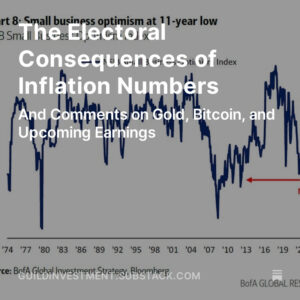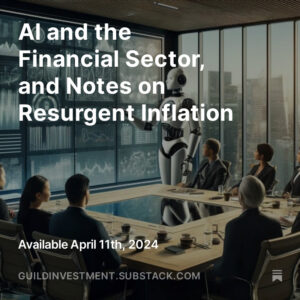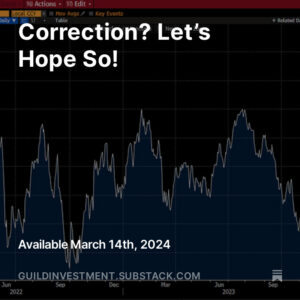An idea that was once a twinkle in the eye of radicals is gaining ground among the Silicon Valley intelligentsia, including Elon Musk and Mark Zuckerberg. The concept is that the disruption caused by automation and artificial intelligence is going to be so severe that half the workforce, or maybe more, will ultimately become unemployed. Advocates say: “Disruption is already moving up the ladder from low-skill and low-income jobs to affect more and more middle-income white-collar jobs, and artificial intelligence is reaching an inflection point where it is about to exponentially accelerate in power. So why not tax the robots and just give everyone an income sufficient to live on?” You can read about how this idea is gaining ground among tech leaders here.
This idea — “universal basic income” or UBI — has until now been popular only among some left-wing advocates in Europe. (The Swiss recently voted down a proposal to implement it in that country.) So it speaks volumes about the growing fear of robot-driven unemployment that it has become a trendy view among American “technorati.” Influential tech startup incubator Y-Combinator has just started a pilot program in which they will distribute $1000 per month to 1000 recipients in two states for the next five years, no strings attached, to study outcomes. It probably sounds sensible to a lot of well-meaning American voters who worry that technological disruption is going to destroy broad-based prosperity for American workers by replacing them with robots and putting them out of work. (It also flatters the sense of some Silicon Valley leaders that their talent and insight can solve all the world’s problems.) Over the past few years, several high-profile academic studies that were widely reported in the media have supported this alarming view of the effects of future automation.
We are uncertain if the UBI would work effectively. But leaving aside any unintended consequences, we believe that the fear underlying it — the imminent displacement of much of the workforce by artificial intelligence — is based much more in academic imagination than in reality, and that the studies supporting it are deeply flawed.
We’ve written on this subject many times in the past. At the end of 2016, we wrote about a professor at Boston University whose research shows that in many industries, the exact opposite of what the doomsayers predict is what really happens. In a 2015 study, James Bessen showed that the more “computerization” an occupation experiences, the more it outpaces the average job growth of the economy. (If you’re interested, you can find the study here.) Bank tellers are one of his favorite examples. Even though the arrival of ATMs prompted fears that retail bank employment would be all but wiped out, growth in bank teller jobs actually accelerated after the adoption of ATMs. Savings from ATMs allowed banks to open more branches, and tellers’ roles expanded to include more high-touch interaction with customers.
Now Bessen has some additional support. A new and rigorous study of automation just came out from the Organization for Economic Cooperation and Development (OECD), an intergovernmental body that represents the world’s largest developed economies.
This new study starkly contradicts earlier studies that showed a large proportion of jobs in imminent danger of being automated out of existence. The key improvement in its analysis is a much more careful and painstaking breakdown of the kinds of skills that are required for specific occupations.
Low and behold, hidden within many jobs that appear vulnerable to automation are sets of very human skills — the kinds of skills that even the AI doomsayers think will remain the domain of humans for the foreseeable future.
In one of the more alarming studies that got a lot of media attention a few years ago, Oxford University researchers Carl Frey and Michael Osborne identified a few of these key “bottlenecks” for automation — skills and capacities that are still human and will remain so for a long time. Sadly, though, their analysis of jobs suggested that few jobs really rely on these skills — and they concluded that about half of all workers in developed economies were in imminent danger of being “robotized” out of employment.
Source: OECD
The OECD researchers, though, did a much more thorough analysis of jobs — and discovered that many jobs with aspects that can be automated have numerous other aspects which depend on these human skills.
For example, earlier researchers classified all auto mechanics together, whether they worked in an assembly line, or in a private repair shop. But workers in the latter job require a wide array of creative and social skills for interacting with one another and with customers, not to mention the physical dexterity to work in an unstructured and often chaotic and unexpected environment.
These findings led researchers to the realization that automation does not so much eliminate jobs as transform them so that they are comprised more and more of the human skills that are at any given point beyond robots’ reach. Employment will keep pace with automation — and in fact, automation can free up resources for more human labor to provide more valuable services. Across the board, jobs are becoming more intensive in the skills that robots don’t have. And particularly in the areas described in the chart above, we believe it is likely that creative and social intelligence will remain beyond robotic capacity for the foreseeable future.
Across developed economies, the new report suggests that just 9% of workers are in danger of being displaced by robots, rather than the 50% suggested by earlier studies — and predictably, these are jobs at the bottom range of the skill and wage scale. If a government response is needed, it is not a radical one such as UBI — it’s a well-known one, of encouraging training, especially for young and low-skill workers.
Is an employment apocalypse coming, thanks to the robots? We don’t think so — and we counsel the new advocates of radical schemes such as UBI to study the data.
Investment implications: New data are emerging to show that employment disruption from automation will probably not be nearly as severe as studies have suggested over the last several years. A few years ago, the media widely reported an Oxford study which showed that half of all developed-economy jobs were in danger of being automated, and on this basis, many Silicon Valley luminaries have jumped on the “basic minimum income” bandwagon. Investors should not be alarmed. Automation is still a good theme for investors, and will enjoy good long-term growth prospects, but the development of this theme is unlikely to cause major economic disruption and dislocation.








